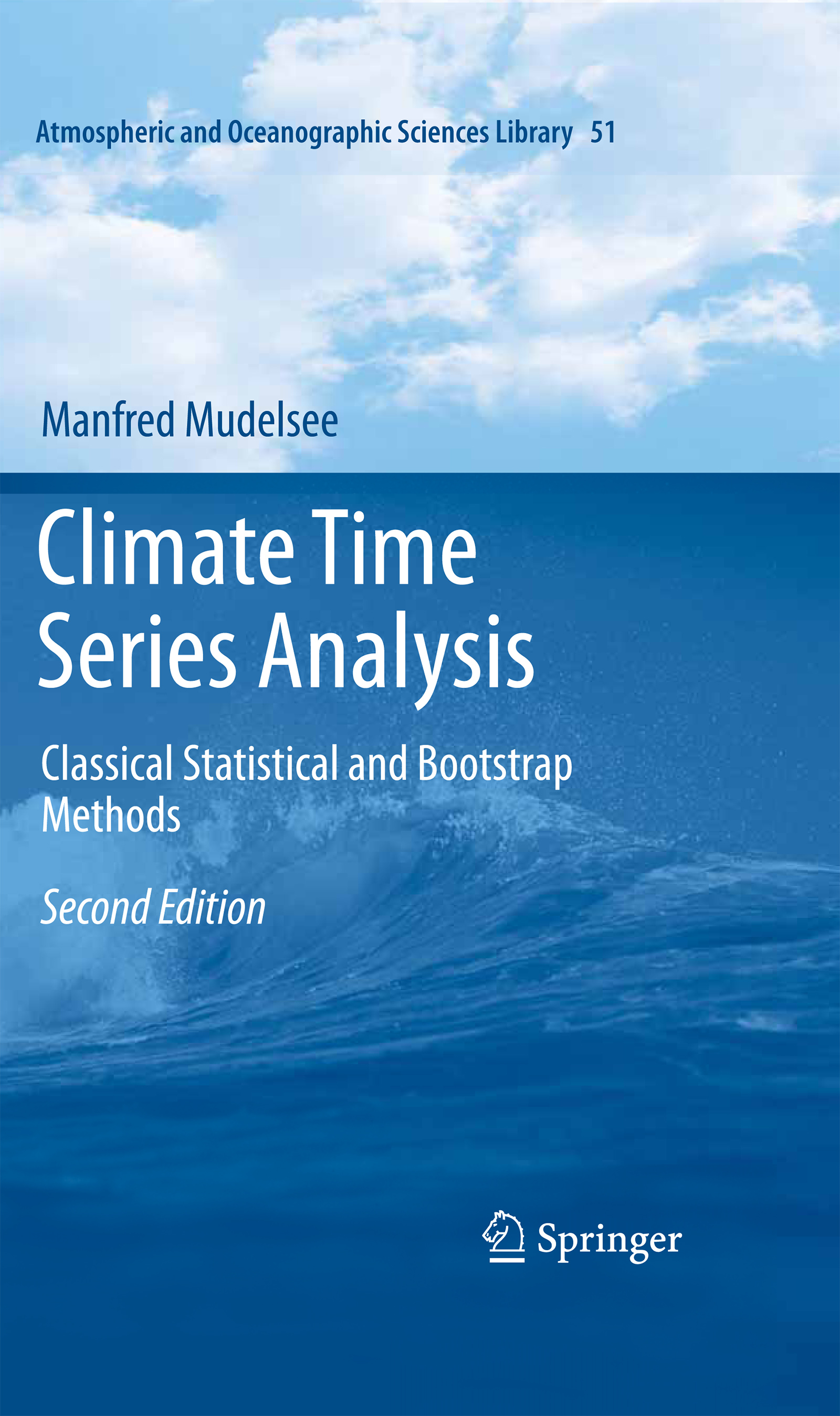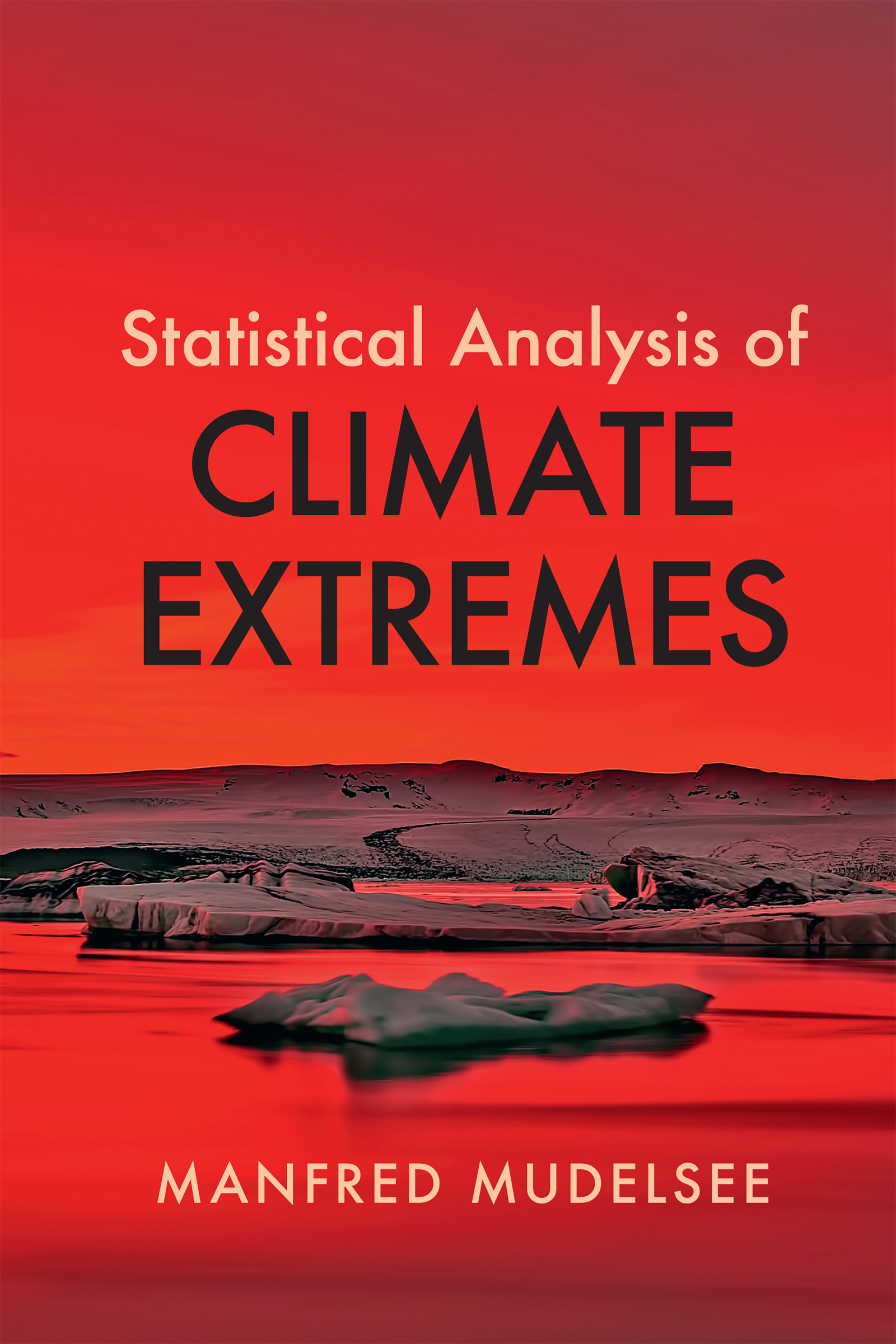Building analytical sovereignty
ACRE’s training is built on a single idea — analytical sovereignty. We help motivated humans to think and analyse independently, to question data, methods and models, and to draw their own conclusions. Our courses bridge research, business, policy and civil society, empowering participants to contribute to SDG 4 (Quality Education) and SDG 13 (Climate Action) in their own regions.
Our approach is Popperian–Beuysian: uniting critical rationalism with creative intuition — empirical, transparent and self-scrutinising on the one hand; creativity-driven and curious on the other. By teaching open, reproducible methods and cultivating intellectual discipline, we enable participants to apply scientific thinking to climate problems and to act responsibly in the face of global change.

Online Course
Climate Time Series Analysis
Flagship course based on our book Climate Time Series Analysis: Classical Statistical and Bootstrap Methods (Mudelsee, M., 2014, Springer, 2nd Edition, 454 pp.). Covers autocorrelation, classical and bootstrap-based uncertainty determination, regression, spectral analysis, extreme values and correlation. Applies to diverse climate data sources — instrumental, proxy and climate model output. Target audience: master’s and doctoral students, postdocs, and professionals working with climate time series. Delivered by Climate Risk Analysis; ACRE provides scholarships and fee waivers for eligible participants.

New Course
Statistical Analysis of Climate Extremes
Comprehensive introduction based on our textbook Statistical Analysis of Climate Extremes (Mudelsee, M., 2020, Cambridge University Press, 200 pp.). Applies to diverse climate data types — event times, peaks over threshold and block extremes. Covers stationary models (GEV, GP) and emphasises the need for non-stationary approaches in the context of climate change. Includes dedicated chapters on floods and droughts, heatwaves and cold spells, and hurricanes and other storms. Supported by an extensive appendix on climate data, natural archives, climate models, statistical inference and numerical techniques. Provides example data and software for replicating the analyses shown in the textbook. Target audience: motivated learners at all levels — from students new to climate statistics to researchers seeking a structured, quantitative understanding of extremes. To be released in 2026 by ACRE.

APRISE
Advanced Quantitative Research Techniques and Experimental Design
An introductory course on the logic of quantitative research — from observation to hypothesis, from measurement to inference. Participants learn how data, uncertainty and reasoning interact in the scientific process, with examples from environmental and natural sciences. The emphasis lies on experimental design, reproducible analysis and critical interpretation. Guided by Popper’s principle of falsification and the logic of scientific discovery, the course illustrates how progress in modern science still arises from questioning and testing. Topics include uncertainty determination, confidence intervals and statistical significance, data quality, and the balance between model simplicity and explanatory power. Target audience: early-stage researchers and graduate students in environmental, agricultural and natural sciences. No specific climate background required. To be released in Summer 2026 by ACRE within the APRISE project.